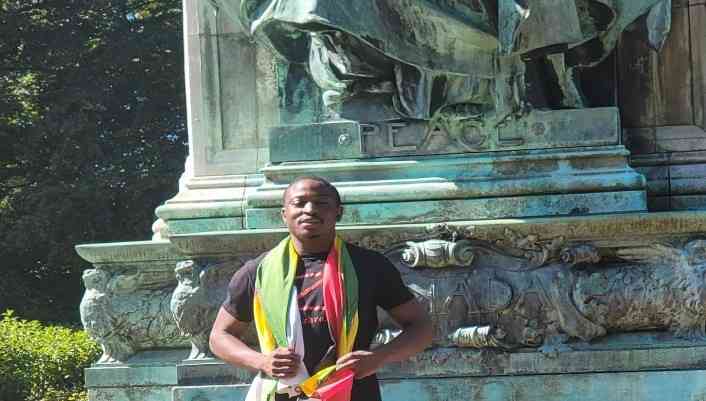
Guest Column: Alex Magaisa
CYCLONE Idai, a tropical phenomenon, has ravaged the south-eastern coast of Africa, causing serious devastation and loss of hundreds of lives. Most affected are Malawi, Mozambique and Zimbabwe. Lives, livelihoods, homes and businesses have been completely destroyed. Bridges have been swept away, cutting off communities which have always been marginalised and neglected.
Many people have rallied around the victims and survivors, giving a helping hand. One of the memorable stories is how a hotel in the area, Chimanimani Hotel, opened its doors to give sanctuary to the beleaguered community. There are stories of heroic teachers who have stood with their school-kids, hemmed in by the flood-waters, but refusing to give up.
Nevertheless, it is truly a tragic story. Hundreds are still unaccounted for and many are feared dead, swept away by the raging flood. Reports say in some cases, entire villages have been decimated by the flood. The say in some cases, the flood arrived in the middle of the night, after villagers had retired to bed. They were swept away in their sleep.
Cyclone Idai has been referred to as a natural disaster and it is. However, this is not 1800, when forecasting weather conditions was a guessing game without scientific rigour. In 1800, Cyclone Idai would have arrived without warning, catching communities unawares. They would have attributed it to some angry spirits, which needed appeasement. But this is the 21st Century. The wheels of science have moved so fast and so far that it is possible to predict future weather conditions with pinpoint accuracy.
This is why the coming of Cyclone Idai was not a secret. It was foretold before it struck; long enough to anticipate and prepare for its arrival. Warnings and images were shared on social media. While Cyclone Idai is, indeed, the hand of nature, the hand of humankind was given every opportunity to mitigate its consequences. That hand of humankind is the government.
Over the last few days, as the nation began to process the scale of the disaster brought by Cyclone Idai, there have been voices of criticism, arguing that the government failed in its duty to take risk-mitigation measures that could have reduced the scale of loss and damage to affected communities. However, there is also a contingent which is trying hard to stop people from scrutinising the role of the State in this unfolding disaster. It’s not political; let’s not politicise the matter, they argue, as if there is a clear line of demarcation between the “political” and the “non-political”; indeed, as if there is a bell-ringer who, by the sound of the bell, will at some point announce that it is now time for politics. Underneath this exhortation of silence is a false characterisation of the catastrophe as merely a natural disaster. It presumes that the State has no agency in this whole affair, which is misleading.
It is important, even in the midst of this crisis, to examine why some are questioning the State and in particular, the conduct of the country’s President in the handling of Cyclone Idai. The role of the State to protect citizens is a legal and constitutional matter. Section 35(3)(a) of the Constitution provides that every citizen is entitled “to the protection of the State, wherever they may be”.
- Chamisa under fire over US$120K donation
- Mavhunga puts DeMbare into Chibuku quarterfinals
- Pension funds bet on Cabora Bassa oilfields
- Councils defy govt fire tender directive
Keep Reading
This is a general duty which covers all types of threats to citizens, man-made, like war or natural, like the flood. Therefore, when citizens raise questions about the duty of the State to protect communities affected by Cyclone Idai, they are not being a political nuisance, but they are simply emphasising its constitutional obligations and reminding the leaders that they are not doing them a favour. It’s a legal duty.
Indeed, this is why one of the exceptional circumstances in which the Constitution allows the deployment of the military is when there is an emergency or disaster. By section 213(2)(c) the President is allowed to deploy troops “in support of the Police Service and other civilian authorities in the event of an emergency or disaster”.
However, beyond that, the State must take risk-mitigation measures, particularly where an impending natural disaster is known. In this specific case, criticism arises from the fact that the government did not take sufficient measures to mitigate the risk of loss arising from Cyclone Idai, whose coming was never a secret. While the State has deployed the military to assist communities, it was a reaction after the disaster had already struck. Measures such as evacuation from low-lying regions and flood plains could have been taken and, indeed, should have been taken before disaster struck. These are legitimate criticisms from which the State should draw lessons because this won’t be the last disaster.
Questioning the government and pointing out the shortcomings of its approach in a major crisis is not unique to Zimbabwe. Wherever natural disasters have struck around the world, governments have been challenged over their disaster-preparedness and risk mitigation measures. Indeed, in some cases, it has been found that what exacerbates the scale of a disaster are deep structural weaknesses arising from poor government policies. It is lazy to simply attribute damage to natural disasters as if the government is helpless and unable to prepare for such circumstances.
If anything, it is absolutely necessary to question the government as part of a nation’s accountability systems. People should not be made to feel guilty for holding their government to account.
In all this, people assess the conduct of their government whenever disaster strikes. Leaders are expected to show empathy and compassion; to stand with the beleaguered in their time of suffering. That in itself is symbolism which shows that the leaders do care. This is why the then President of the United States, George W. Bush, was criticised for his administration’s inadequate response in the wake of Hurricane Katrina in 2005. Americans did not wait until after the disaster to assess the conduct of their leader and the disaster management authorities.
Likewise, there is nothing amiss when Zimbabweans question the conduct of their President in relation to the handling of Cyclone Idai. The moment Mnangagwa left the country as the disaster of CycloneI Idai unfolded, he was bound to face criticism. It was not a secret that Cyclone Idai had already caused damage and loss of human life in neighbouring Mozambique, or that it was on its way to Zimbabwe. He knew or ought to have known that his trip to the UAE in those circumstances was ill-advised. It suggested a coldness of heart and a lack of caring for the affected communities. That is not how leaders are expected to behave.
Worse, however, was the pathetic attempt by the propaganda machine to spin his return from a trip that should never have happened in the first place. “ED cuts short UAE trip to respond to Cyclone Idai back home,” wrote the State daily, The Herald, portraying the image of a heroic and caring leader who had dropped something more important to be with the people. But the truth is that the man had left in full knowledge of a disaster that had already struck. It’s one thing to make a bad judgment call on the trip, but to try to gain some political advantage from it is truly despicable and cruel.
The irony is that those arguing that it is not the time to do politics by questioning the regime did not have anything to say when the propaganda machine was trying to make political capital out of Mnangagwa’s return when a reasonable and caring leader should never have left his people in distress in the first place.
It is important for citizens to continue mobilising support for their fellow citizens, but it is equally vital to hold the government to account and to point to its failings where they are evident. If it is a listening government, it will draw lessons for the future because on this occasion, it has been woefully inadequate.
Alex Magaisa is a lecturer of law at the Kent Law School of the University of Kent. He writes in his personal capacity.











